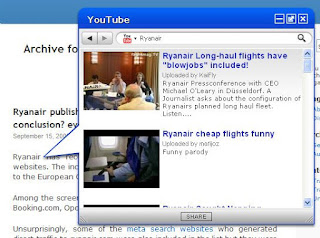Amadeus has recently launched the new layout of the flight results in the e-Power Internet Booking Engine. The new feature is in beta-testing on Paravion website and more customers will follow soon.
It’s a fact that consumers will always want a simple and quick tool to help them find the proper travel services. This enhancement will allow the users to narrow the search results through intuitive filters and pick-up the right flight recommendation from the list.
The new display includes:
Combined filters
- number of stops;
- multiple airline-selection tool;
- outbound / inbound airports;
- outbound / return departure times filters;
- price range sliding bar.
All the filters are very fast as they are updating on the client side without refreshing the page.
Even the user is scrolling vertically through the flight recommendations, the results filter box is always kept at the eyes level in order to ease the filtering of the various options.
Fare matrix view
- displays a nice summary table showing fares by number of stops and airline
- one can also sort the results by Price, Duration and Outbound departure time
Quick search form
It allows the user to change the current flight search directly from the results page without going back to the detailed search form.
Additionally, the quick search form is keeping the previous search data.
The previous version of the flight search results was quite limited having in view that the user was not able to select a specific flight schedule for the lowest price. All the flight recommendations were offered as such, starting from the lowest fare.
The new layout is grouping several flight schedules for the same fare thus offering the user the possibility to select the right flight times.






